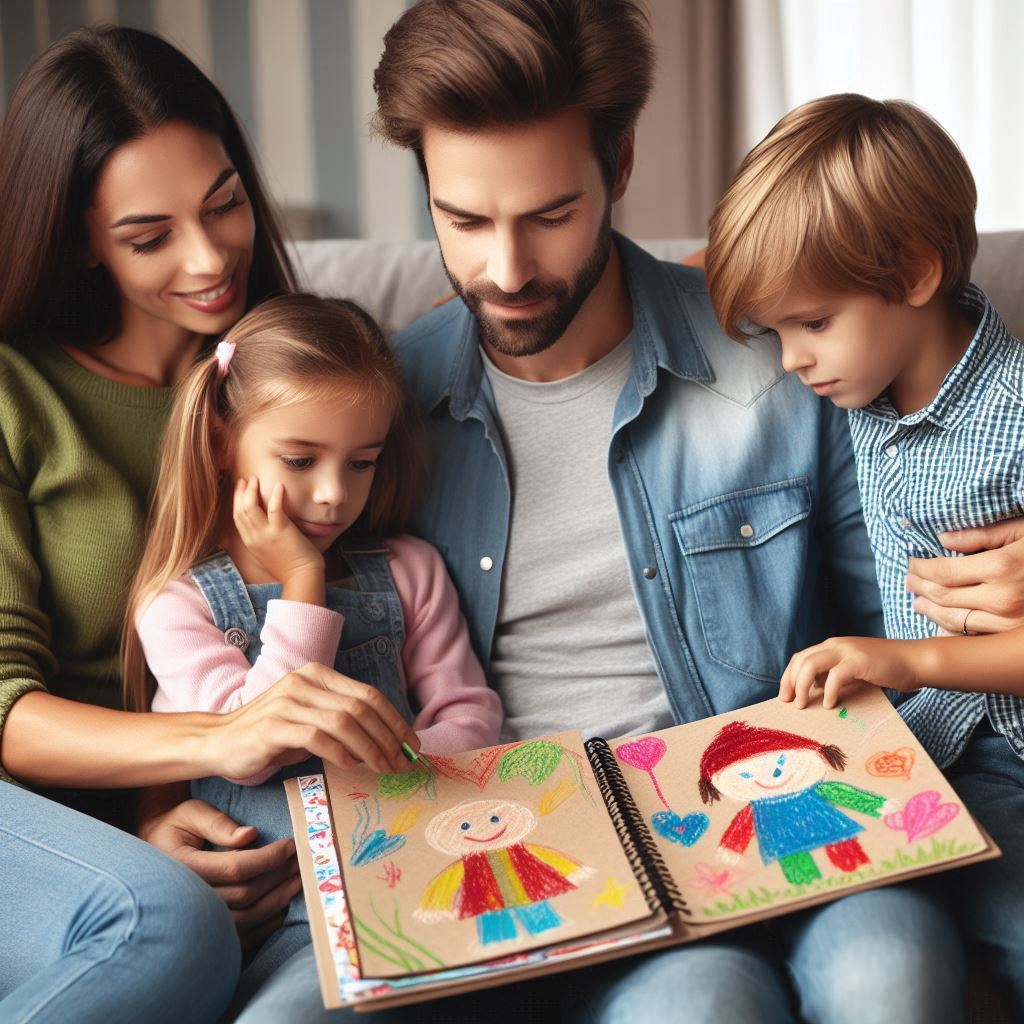That love freely given and freely received is the greatest gift of all:
Gerald had always been a man who kept his head down and his heart guarded. His life revolved around work—long, grueling days at the lumber mill—and he carried the weight of his family on shoulders that were hunched from decades of toil. To Gerald, love was something you showed, not something you received. He built treehouses, repaired leaky roofs, and ensured there was food on the table, but he could never shake the feeling that he wasn’t enough, that he didn’t deserve the love his wife and children offered so freely.
On a bitter winter evening, after a particularly hard day, Gerald trudged home, his boots caked with snow and his body aching. As he opened the front door, the warmth of the house enveloped him, but he barely noticed. He was too tired, too consumed by his own insecurities to see the light in his family’s eyes when they greeted him.
“Come sit, Daddy,” Emily said, her voice excited and full of anticipation. Gerald hesitated. He felt out of place, like a visitor in his own home. But something in her voice compelled him to stay.
On the table was a scrapbook, its cover adorned with clumsy but heartfelt decorations. Margaret smiled at him, her eyes shimmering with unspoken love. “This is for you,” she said gently.
Emily opened the book, and as her small voice began to read the stories and messages they had written for him, Gerald felt a lump rise in his throat. There were pages filled with crayon drawings of him chopping wood, stories of how he’d fixed David’s bike when no one else could, and Margaret’s memories of the quiet moments they shared by the fire when the world felt heavy.
Tears, unbidden and unstoppable, began to roll down Gerald’s weathered cheeks. He had spent so much of his life convinced that his worth was tied solely to what he could provide, never realizing that his love—unspoken but constant—was enough. He saw, through their eyes, the man they cherished: a father who showed up every day, a husband who held their world together, a soul far more deserving of love than he had ever believed.
That night, something broke inside Gerald, but it wasn’t painful. It was the shattering of walls he had built around his heart, walls that had kept him from fully embracing the love that had been waiting for him all along. For the first time, he allowed himself to feel worthy—not because of what he had done, but because of who he was.
From that night forward, Gerald began to open his heart to their love. It wasn’t easy at first—years of guarding himself weren’t undone overnight—but he slowly allowed their affection to fill the spaces inside him where insecurity once lived. He began to notice the small moments: Emily’s laughter over dinner, David’s eagerness to share his day, Margaret’s hand reaching for his as they sat cuddled together on the couch.
He finally understood that love wasn’t something you earned—it was something you received, and it made him stronger than ever before.
As Gerald embraced the love that had always been there, he felt something he hadn’t felt in years—lightness. Happiness began to weave itself into his life, not as a fleeting feeling, but as a steady companion. He found joy in the simplest things: playing games with Emily, teaching David how to fix a worn-out chair, dancing in the kitchen with Margaret when the radio played an old tune. The laughter in their home seemed louder, the hugs warmer, the days brighter.
Gerald discovered that accepting love didn’t make him weak—it made him stronger. It connected him to his family in a way he hadn’t thought possible and allowed him to be not just a provider, but a true partner in their lives.
In the end, Gerald didn’t just change—he blossomed. And through his transformation, he taught his family a lesson they carried with them forever: that love freely given and freely received is the greatest gift of all.



